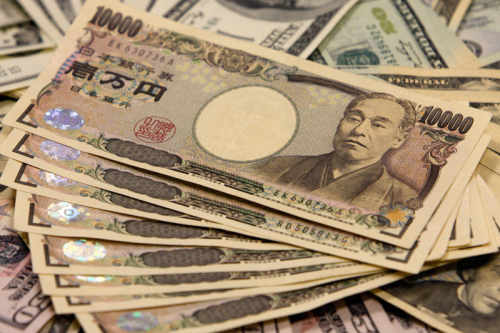 The Australian dollar was flat and the yen marginally weaker in early Asia on Wednesday with Tokyo shut and China data ahead.
The Australian dollar was flat and the yen marginally weaker in early Asia on Wednesday with Tokyo shut and China data ahead.AUD/USD changed hands at 0.7770, flat, while USD/JPY traded at 119.47, up 0.03%. EUR/USD traded at 1.1316, down 0.04%.
Japanese markets are closed for a public holiday. Elsewhere, another series of Chinese data releases are expected to generate interest today.
China's January new loans, money supply and total social financing data are due, but there is no fixed time.
New loans are expected to have nearly doubled in January to 1.35 trillion yuan while total social financing -- the PBOC's broadest public measure of funding activity in the financial system -- may have hit 2.1 trillion yuan, up from December's 1.69 trillion yuan.
Meanwhile in Australia, the Westpac-MI Consumer Sentiment survey is due at 1030 Sydney time (2330 GMT) followed by the 1130 (0030 GMT) release of December housing finance and investment housing loan value.
The expectation is for a rise in the Westpac MI index to reflect the impact of RBA cash rate cut which was passed in full to mortgage-holders by banks, and the fall in petrol prices. As for housing finance, the expectation is for 2.0% month-on-month rise in the number of loans approved versus a fall of 0.7% in November.
Overnight, the dollar held gains against the other major currencies on Tuesday, as concerns over a potential Greek exit from the euro zone continued to dominate market sentiment.
The euro has been under pressure since Greek Prime Minister Alexis Tsipras said over the weekend that he will deliver on pre-election pledges to roll back austerity measures and rejected an international bailout extension.
Tsipras said he is seeking a new agreement to cover Greece’s funding needs until June.
The U.S. dollar index, which measures the greenback’s strength against a trade-weighted basket of six major currencies, was quoted at 94.82, down 0.04%.
Also Tuesday, official data showed that China’s consumer price index rose by an annualized 0.8% in January. It was the weakest reading since November 2009, adding to pressure on Beijing to step up measures to bolster growth in the world’s second-largest economy.
(By Investing.com)

